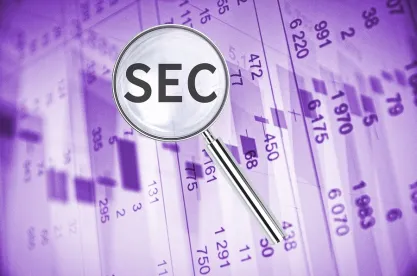Since announcing the creation of its Climate and ESG Task Force on March 4, 2021, the Securities and Exchange Commission has continued to emphasize that environmental, social and governance (ESG) issues will take center stage disclosure and enforcement priorities in 2021 and beyond, although substantial work is yet to be done by the SEC to craft a comprehensive ESG disclosure framework. In the meantime, the plaintiffs’ bar is expected to follow the SEC’s lead, and ESG class-actions will likely test disclosure adequacy even before the SEC’s rulemaking is complete.
In a March 15 speech at the Center for American Progress, SEC Acting Chair Allison Herren Lee made clear that “no single issue has been more pressing for me than ensuring that the SEC is fully engaged in confronting the risks and opportunities that climate and ESG pose for investors, our financial system, and our economy.” Lee noted that “this last year has helped to clarify why the perceived barrier between social value and market value is breaking down,” and that “we noted in real time that the issues dominating our national conversation were the same as those dominating decision-making in the boardroom.”
Given the importance of ESG disclosures, Lee described the steps taken by the SEC to create a comprehensive ESG disclosure framework, including climate disclosure directives to SEC staff, which will include a review of the extent to which public companies have addressed climate issues under the SEC’s 2010 climate guidance, as well as a request for public comment on future climate disclosure rules and guidance. The request for comments asks the public to address 15 considerations, including how information related to climate risks can be quantified and measured, as well as whether there should be varying climate change reporting standards for different industries.
In a similar address on March 11 to the Tulane Corporate Law Institute, John Coates, the Acting Director of the Division of Corporate Finance, reiterated that “there remains substantial debate over the precise contents and details of what ESG disclosures might or should encompass,” adding that “[p]art of the difficulty is in the fact that ESG is at the same time very broad, touching every company in some manner, but also quite specific in that the ESG issues companies can face can vary significantly based on their industry.”
While the SEC continues to seek consensus on the standard for ESG disclosures, its enforcement efforts on the topic are moving forward. For example, as described in a prior client alert, the SEC recently settled charges against The Cheesecake Factory for its COVID-related disclosures and it has made clear that the new Climate and ESG Task Force's mandate is to focus on identifying “material gaps or misstatements in issuers’ disclosures of climate risks under existing rules.”
Indeed, SEC personnel recently reiterated that ESG issues will be an enforcement priority. Speaking at this month’s Investment Adviser Association’s Compliance Conference, SEC Examinations Director Peter Driscoll said examiners will be looking not only at the effectiveness of disclosures, but also whether there is a disconnect between what an investment firm is saying to the public and its actual trading practices and investment strategies. Driscoll further noted that certain industries will face greater ESG scrutiny during examinations, and that the SEC will soon be issuing a Risk Alert related to ESG issues.1
Given the ways in which events of the past year—such as COVID and winter storms—have disrupted normal business operations, Driscoll also said that the Division of Examinations will focus on firms’ business continuity and disaster plans, including whether those plans account for the physical risks associated with climate change. This is consistent with the SEC’s 2021 Examination Priorities, released earlier this month.
Importantly, while the SEC has not yet solidified its ESG disclosure policies, it is clear that a sea change has occurred and that ESG-related regulation will permeate the agency’s divisions. As the SEC builds its program, companies still face the risk of class-action lawsuits for inadequate disclosures of ESG issues, and litigation is likely to become a popular forum for investors to challenge the sufficiency of ESG disclosures. Further, it is almost a certainty that investors will use ESG-related issues through proxy solicitations and shareholder proposals, which may provide fertile ground for certain activist investors with ulterior motives.
In light of the enhanced focus on ESG issues and the potential risk they pose, companies should begin to take steps now to ensure compliance and avoid litigation, including:
-
Updating risk assessments to review company-specific ESG risks and the effectiveness of policies and internal controls designed to mitigate risk. The risk assessment should evaluate not only legal risk, but also potential reputational harm.
-
Addressing gaps identified during the risk assessment by implementing new or revised policies and procedures.
-
Reviewing disclosures to ensure that ESG issues are being reported accurately.
-
Conducting peer analysis to consider what companies within the same industry and market are doing to address ESG issues.
-
Ensuring the accuracy of statements made by the company in public facing materials such as advertising with respect to ESG.
1 Risk Alerts provide observations made by the Division of Examinations during examinations of SEC-regulated firms, and seek to provide transparency about areas of focus for future examinations.






 />i
/>i

